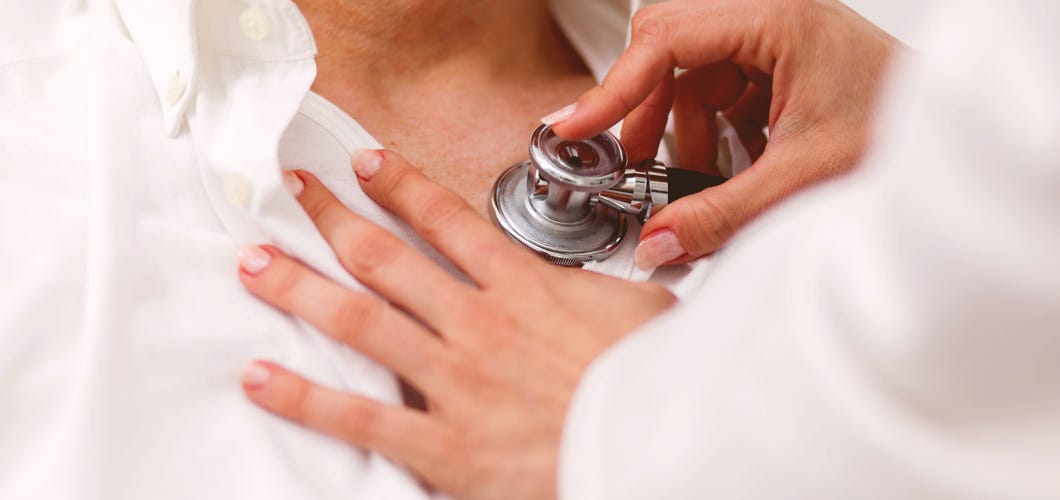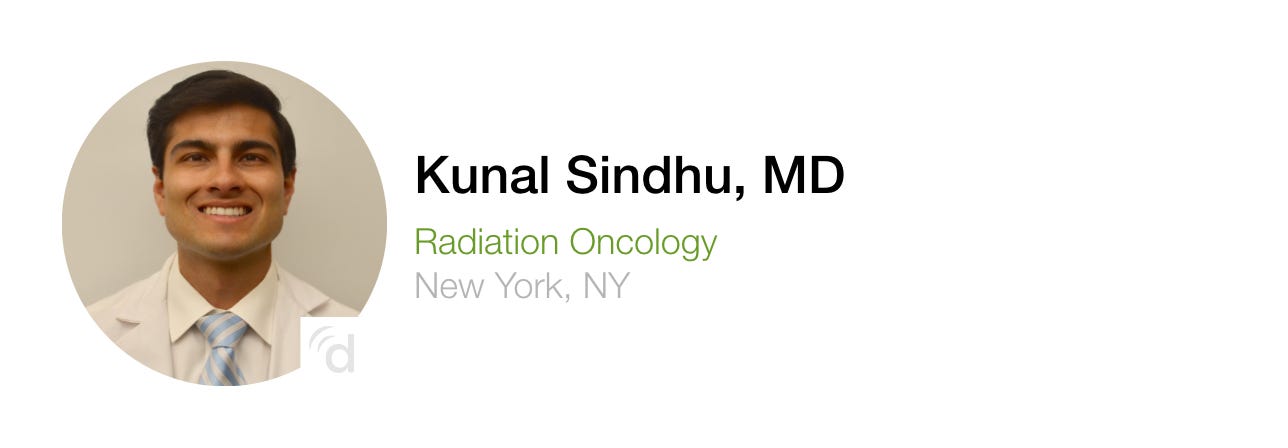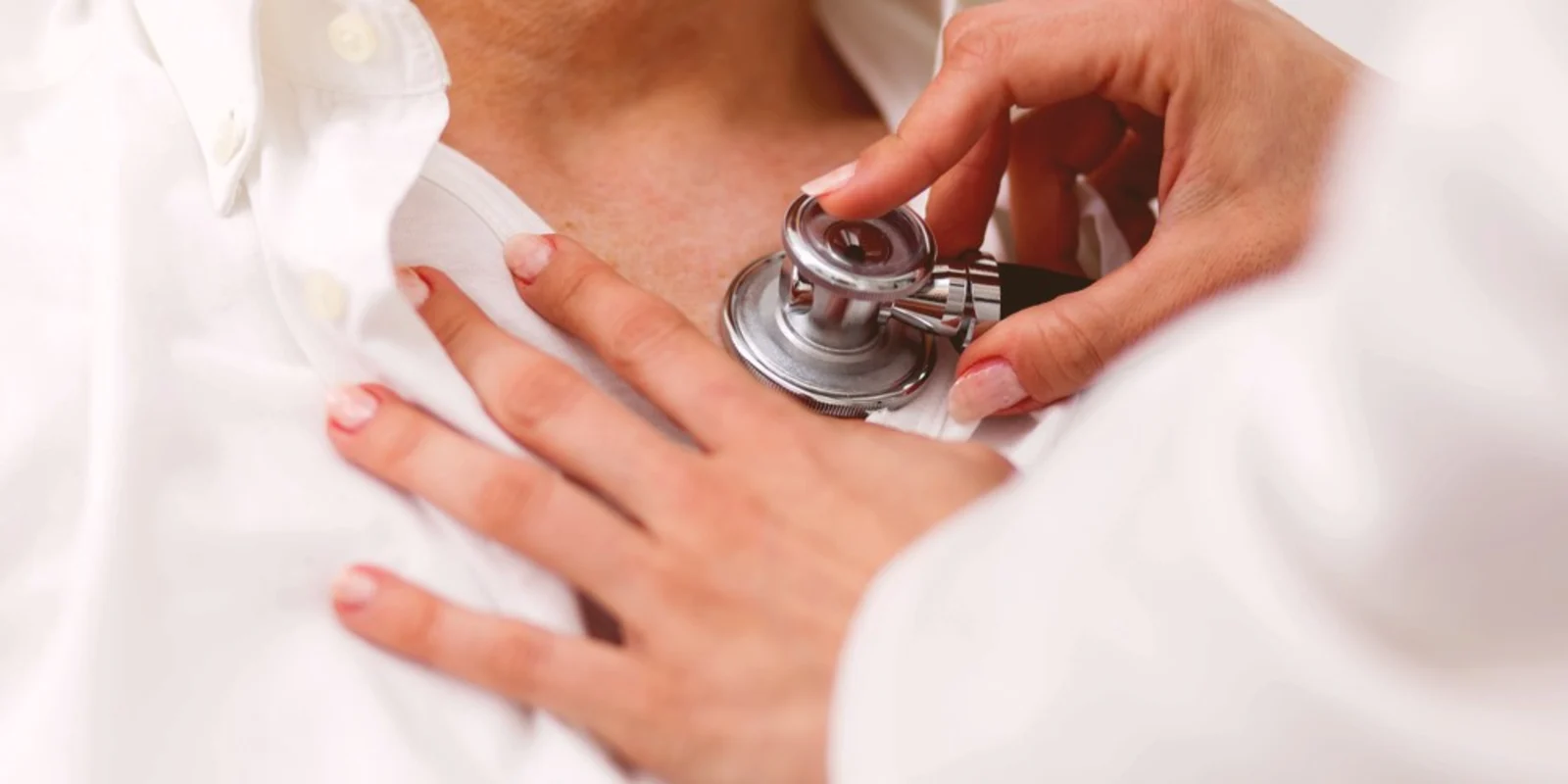
I had a bad feeling about what was to come.
The tasks for my first clinical exam in medical school weren’t all that complicated. All I had to do was gather a short history from a standardized patient (an actor pretending he was sick) and take his blood pressure.
But the first six weeks of medical school had been so chaotic that I didn’t quite feel prepared. Even though I had practiced taking blood pressures over and over again, I never felt like I had mastered it.
The interview went smoothly. As I wrapped the cuff around my patient’s arm, I tried to act confident. After all, I knew the stress of the moment would soon pass. But as I inflated the cuff, I was nervous. As my mind raced, I failed to notice that the cuff I had chosen was far too small for my patient’s arm.
As the cuff slowly expanded, the strips of velcro holding it together began to separate audibly. With each pump, the process only got louder. Rather than stopping to recalibrate, I pushed on, too embarrassed to look my patient in the eye as the disaster unfolded in slow motion. But I knew that he noticed what was happening. Worse, my professor, who was sitting in the corner grading me, noticed too.
As the first beads of sweat appeared on my forehead, the cuff violently came apart. To my horror, it landed about halfway between my professor and me. All of a sudden, the room felt quite warm.
I rushed to my knees, scrambling to collect the cuff. That’s when it hit me: I had definitely failed this test.
Though I made it look difficult that day, taking a blood pressure is an elementary skill for a physician. With more practice, I would go on to master it. But that day, needless to say, I failed.
While I regard my failure as a bit more spectacular than most, I recently I found out that my experience wasn’t as unique as I had once thought. A recent paper assessed 159 medical students on their blood pressure measurement skills. It divided a proper measurement into 11 discrete skills. Shockingly, the students on average performed only 4.1 of the 11 skills correctly. Worse, only one student performed all 11 correctly.
These results speak to a wider problem in medical education. At every step of the way, medical students are primarily assessed by their ability to memorize facts. When it comes to teaching those facts, most medical schools are effective. They force students to learn an incredible amount of information by testing them frequently and providing help when needed. It should be no surprise that almost all medical students ultimately graduate.
But when it comes to clinical and procedural skills, which are harder to test, medical schools often come up short. Senior medical students are rarely observed by faculty when performing core clinical tasks like interviewing patients and performing physical examinations. And a majority of them do not perform several important procedures while in school. A minority do not even complete simple ones, like placing an IV, before they graduate.
The reasons for this vary. Many medical schools lack dedicated courses devoted to clinical and procedural skills. Resident and attending physicians, the primary teachers for senior medical students, are extraordinarily busy and often don’t have time to observe or teach new procedures on a daily basis. Patients, too, may be reluctant to let inexperienced students perform procedures on them for the first time.
These missed opportunities have lasting consequences. Early clinical deficiencies are often not fixed during residency. Residents are supervised even less than senior medical students during patient encounters and simple procedures, so even significant shortcomings are rarely caught. And once residents graduate and become attendings, they are supervised even less. Remediation becomes challenging, if not impossible.
As a result, it should be no surprise that resident and attending physicians routinely make mistakes performing simple clinical tasks. Or that many senior residents aren’t comfortable performing a variety of essential procedures on their own.
Catching skills deficits early on and intervening is thus extremely important. As it stands, medical schools are best-positioned to do this; they can more comprehensively scrutinize their students’ skills than any other institution they will encounter during their training. Schools can also provide opportunities for remediation. Though their track record in this area has historically been mixed, medical schools can improve on their performance with just a few key steps.
Clinical skills. Requiring senior medical students to engage in more patient interactions observed by residents and attendings could go a long way. Of course, this would have to be balanced with the time constraints that observers face on a daily basis. But surely a compromise exists.
At the moment, many medical students go through entire six-week rotations without being observed interacting with patients at all. Even a weekly observation schedule, in contrast, would better suit their learning and accommodate the busy schedules of their teachers. Attendings and residents, in turn, would be better positioned to identify students who could benefit from further instruction. Luckily, remediation has been shown to work, so such a scheme could prove highly effective.
Procedures. For procedures. a dual approach could be used. Nurses are experienced in a variety of procedures, but they’re rarely incorporated into medical student education. Why not better utilize their vast experience? Offering medical students the opportunity to take clinical nursing rotations, for instance, could provide them with a chance to master some procedures, like inserting Foley catheters and placing peripheral IVs. This could benefit them and their patients in the future.
Additionally, developing dedicated clinical procedure rotations could further expand opportunities for students to hone their skills. In lieu of direct care of patients, these rotations would specifically aim to give participants the opportunity to perform procedures on hospital floors. Practice, after all, makes perfect, and some residency programs have found that these rotations improve residents’ skills. Medical students would likely benefit, too.
Once doctors finish residency, it becomes much harder to remediate those who need it. So why not start early, when those future doctors are medical students? After all, their future patients stand to benefit.

Kunal Sindhu is a resident physician in New York City and a 2017–2018 Doximity Fellow. You can follow him on Twitter @sindhu_kunal.







